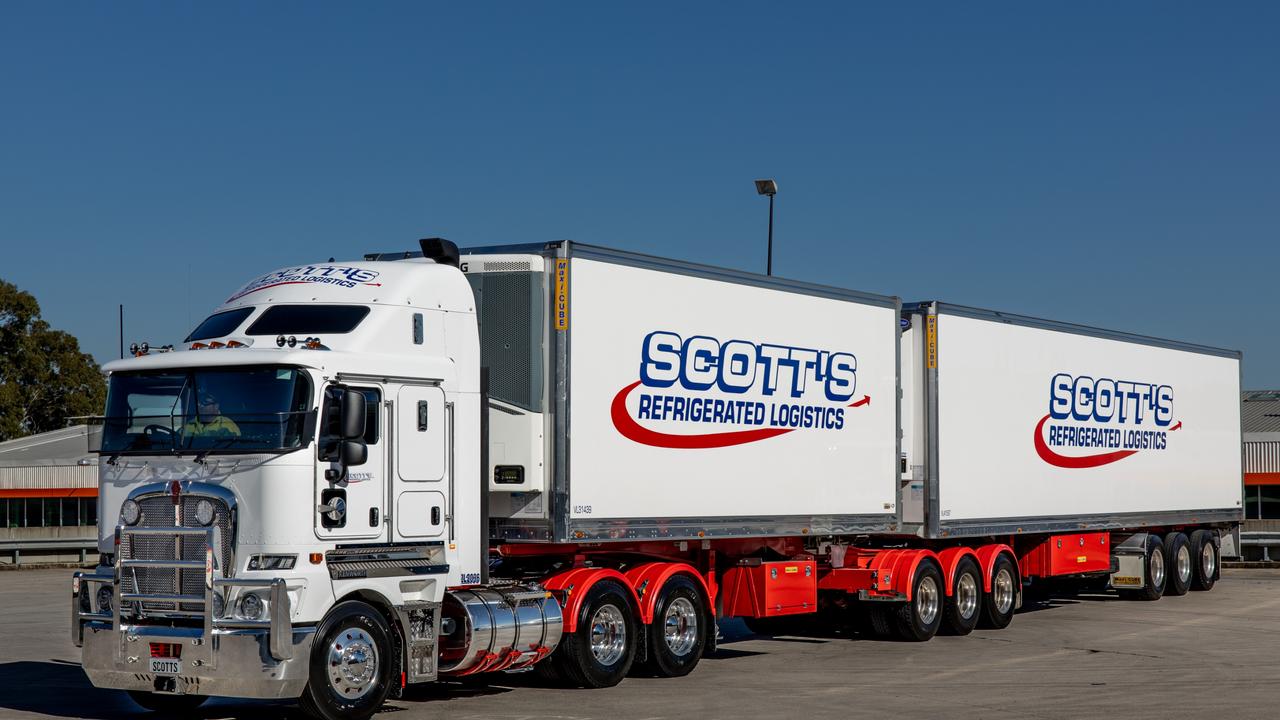Financial pressure has sparked a 180 per cent rise in insolvencies in the transport sector since FY22
Once a covid pandemic success story, the transport and logistics sector has had a 180 per cent plus increase in insolvencies in less than three years and there’s more to come.

Business
Don't miss out on the headlines from Business. Followed categories will be added to My News.
Mounting financial pressure is pushing more Australian transport and logistics operators to the brink, as insolvencies in the sector accelerate and more high profile businesses are in the firing line.
Business recovery and insolvency firm Jirsch Sutherland said the sector was once seen as a pandemic-era success story but was now grappling with rising costs, labour shortages, regulatory burdens and falling asset values – a combination that’s driving more businesses to restructure or wind down.
While the challenges are global, Australia has witnessed the collapse of several notable operators including Scott’s Refrigerated Logistics, Austrans Container Services, and Lion Global Forwarding.
ASIC data reveals a sharp upward trend in insolvency appointments within Australia’s Transport, Postal and Warehousing sector.
They rose from 196 in 2021-2022 to 347 in 2022-2023, and 495 in 2023-2024 – a 153 per cent increase in just two years.
As of April 13 this year, 551 insolvencies had already been recorded, representing a 181 per cent increase compared to 2021-2022 and putting the industry on track for another record year.

Jimmy Trpcevski, managing Partner of WA Insolvency Solutions which is part of Jirsch Sutherland, said they have seen a marked increase in insolvency appointments and inquiries from transport operators.
“Businesses are being squeezed from every direction — whether it’s rising operating costs, labour shortages, or compliance pressures. Margins are incredibly thin, and many operators simply can’t absorb the extra costs,” he said.
Falling asset values have also added to the strain.
Hymans Valuers and Auctioneers chief executive Ian Hyman said the second-hand truck market has flipped since the pandemic, with some values dropping by as much as 70 per cent.
“Long-haul operators are doing it particularly tough,” he said.
“They have massive investments in equipment and huge ongoing costs, and with interest rates still high, their repayments remain burdensome.”
Mr Hyman said regulation and compliance also had an impact on the sector.
“Government regulation is getting worse: industry collective bargaining, unrestrained union behaviour, abolition of employee restraint clauses and a myriad of other government-related controls create roadblocks to efficient and well managed operations,” he said.
“It’s all going to make life even harder. These are unprecedented times. I think we’ll see further increases in insolvencies for another couple of years at least.”
Jirsch Sutherland is currently handling the liquidation of national transport and logistics business Arva Investments Pty Ltd that grew rapidly but struggled with cash flow as trading costs rose.
“The company had expanded quickly to meet demand but didn’t have the working capital to manage the increased overheads," said Andrew Mattinson, principal with Jirsch Sutherland.
“By the time we were appointed, it had already ceased trading. That kind of imbalance in the transport sector can be like trying to accelerate uphill in top gear – you’ll stall if the engine doesn’t have the torque to match.”
Originally published as Financial pressure has sparked a 180 per cent rise in insolvencies in the transport sector since FY22







